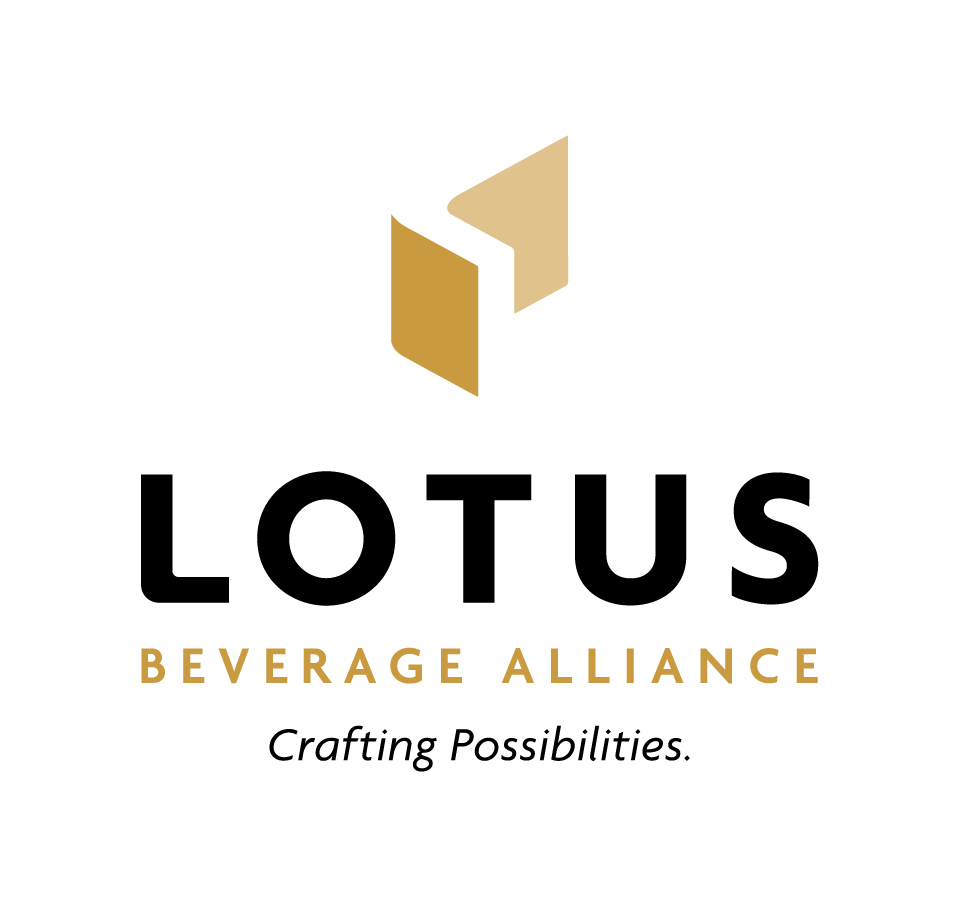Innovation in packaging has changed as the beer industry evolved. First it was simple packaging that did not leak, then it was tighter seals and ways to fill and transport. The materials became lighter and more robust. Shapes evolved, and manufacturers found ways to make everything run faster and smoother while delivering a usable customer experience.

Packaging featured expert topic supported by Lotus Beverage Alliance
Lotus Beverage Alliance unites expert manufacturers and suppliers to empower your craft beverage business. We are allied to be the complete resource for equipment, ingredients and parts supply – all backed by exceptional service. Meet our alliance: Alpha Brew Ops, GW Kent, Stout Tanks and Kettles, Brewmation, Twin Monkeys, and Automated Extractions.
Ease of use for everything from packaging lines to carrying cases remains top of mind, and companies are constantly releasing improved versions of already-known equipment. Case and point Oktober, the growler machine company has released its model eight that “seals cans with the push of a button.”
“On top of that it includes an all-new robust needle bearing seaming roller design for increased lifetime and reliability, new subtle LED lighting to attract your customers to your new TO-GO canning system, simplified tooling changes for swapping between can sizes, and many more features improving usability and dependability,” the company says in a news release.
Ease of use and customer facing aesthetics are great, but the idea of sustainability has also entered into the conversation for packaging manufacturers.
When Canada announced an upcoming ban on single use plastics, Mark Fagel, a designer, got to work on a can carrier that would compete against the current plastic industry standard, while also being compostable.
The Piac Pro Tech Carrier is made from a proprietary blend of PHA biopolymers binder, and balances strength and elasticity for optimal functionality, and comes in four and six ring sizes, with slim can options in development. Fagel says he is currently looking for investors.
With so much plastic winding up in landfills and in the oceans, finding alternatives to single use plastics is a part of the industry with some juice behind it. Fagel says that in conversations with brewers, they are eager for alternatives that can stand up to the rigor of the packaging line as well as consumer transport while still having a positive impact on the environment.
He says consumers are asking for alternatives as well.
But change does not come overnight. Fagel says that he’s spent two years in research and development, a costly endeavor.
“It’s a lot of time and effort,” he says.
Fagel says that in creating his carrier, which is compostable and breaks down in 120 days, he wanted to make sure it had many of the same features as the plastic counterparts, including being applied by hand or automated, and with strength to hold cans without dropping.
In a conversation, he routinely brought up the compostable feature – which has a set timeline for degrading – versus biodegradable, a commonly used word, which does not have a set time for breaking down.
Another company, E6PR, has been producing plant-based biodegradable ring holders for years now and has seen steady growth in willing customers. The company says the rings are made from a “proprietary mix of bio-based by-product waste from the food and beverage industry, as well as other organic materials.”
Once conditions are met following use, the company says it can compost within 200 days.
Brewers are signing on, including Vermont’s The Alchemist, which told ProBrewer last year that composability was a key factor in implementing the holders for to-go beer.
Joel Hartman, COO, at The Alchemist said the brewery has long tried to innovate and bring sustainable products into all aspects of the brewer’s production stream.
“We’re always keeping an eagle eye out for anything new that develops in the industry that can steer us towards sustainability,” he said.
The overall innovation in the packaging space seems to be keen on keeping materials out of landfills for the long term. This means cardboard holders that are not overly laminated, labels that can degrade, or items that can have multiple uses.
Ball Corp has been pushing re-usable aluminum cups for stadiums, where a high volume of beer and other drinks are served to thousands, usually in single use plastic cups. Durable aluminum cups can be used over and over again with a simple rinse or can be recycled just like traditional cans.
That seems like a smart idea for large volume events but can also be applied to smaller breweries with outdoor space at taprooms where glass is a potential hazard. Using cups like that is also a conversation starter with customers about sustainability and environmental awareness.
These conversations are also a two-way street between manufacturers and brewers. With brewers being in the trenches each day, seeing how waste can pile up, or glean insight from customers, that is valuable data to the researchers and developers who are looking for ways to reduce environmental impacts. Having those conversations is a way to make the planet a little less polluted.
